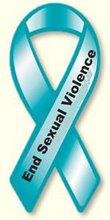Stopping the Silence
February 19, 2009
http://laquishasurvived.blogspot.com/2009/02/help-for-survivor.html
Phil Saviano, our beloved Survivors Network of Those Abused By Priests (SNAP) colleague in Boston is asking for our help. He is facing a serious health crisis and is reaching out to friends, family and the survivor support community for help. Phil's kidneys are failing, and he needs kidney transplant surgery. His health is holding steady right now, but his kidneys are operating at only 16% of capacity. He may have only several months left before they shut down completely.
 |
WHY NOT DIALYSIS?
If Phil's kidneys shut down completely, he could be kept alive on a dialysis machine. He would also be eligible then to join the national transplant list, waiting in line for a kidney transplant from a cadaver. But the wait would be at least 4 years, and his doctors say that it is quite possible that Phil could die on dialysis. It's also possible that by the time a cadaver kidney is available, Phil could be so debilitated that he would no longer be strong enough to withstand the surgery. So his best option, by far, is to get a kidney transplant now, from a live donor.
WHAT'S THE CAUSE?
The cause for Phil's kidney failure goes back to the summer of 1995 when he was given a potent drug to treat a serious infection. The cure was successful, but the drug had the unexpected side effect of damaging his kidneys. Many people know that Phil has been HIV+ for over 25 years. The kidney failure is not due to his HIV status, nor caused by his current regimen of antiviral medications. The HIV virus has been completely suppressed for many years now, and is undetectable in his blood stream.
GOOD NEWS!
The good news is that apart from his failing kidneys, Phil is currently in excellent health. He has had a wide range of medical tests in recent months, and his doctors say he is a fine candidate for the surgery. They have told him that a donor kidney can last an average of 18 years. The surgery will be done at Boston's Beth Israel Deaconess Medical Center, one of ten hospitals across the country that are doing liver and kidney transplants on AIDS patients.
WHAT'S NEEDED IN A DONOR?
Every person is born with two kidneys, but only one is needed for survival with good health. A potential donor for Phil is someone who has either Type O or Type B blood. Potential donors are very carefully screened to be sure they are good candidates for the surgery. The person has to be younger than age 60, with no prior history of cancer or diabetes. The donor cannot currently be significantly overweight, or have significant high blood pressure. Phil has three brothers, but one is too old, one has diabetes, and one is the wrong blood type; so they can't help.
All screening tests, doctor's visits and the surgery and hospitalization are at no charge to the donor. Research studies conducted over many years have shown that donors are not subject to any risk of compromised health or lifestyle in the years after the donation.
Three of Phil's Boston SNAP colleagues have already volunteered to donate. In recent months, they have gone through the roster of free medical tests to see if they are healthy enough to do so. Unfortunately, minor health problems were found in each of the three volunteers, so they were prevented from donating their kidney. That is why we are sending out this notice again, to see if anyone else will consider reaching out to Phil and get tested.
The surgery on the donor is done with a new, minimally-invasive laparoscopic technique that leaves just a small scar, and is much easier to tolerate and recover from than traditional abdominal surgery. The donor's hospital stay is just 2 - 3 days, and the recovery period is two-three weeks. More details about the process can be read on the hospital's transplant team web site:
http://www.bidmc.org/CentersandDepartments/Departments/TransplantInstitute/Kidney/InformationforLivingKidneyDonors.aspx
Anyone who wants more specific information about the testing can contact the donor transplant coordinator at the hospital. Her name is Nancy Salonpuro, RN, and her phone number is 617-632-9851. She is an advocate for the donors, and she keeps confidential any queries or conversations she has with potential donors.
Lastly, anyone who may want to contact Phil and be kept personally appraised of his progress can contact him by email at his SNAP address: saviano2@snapnetwork.org.
Any original material on these pages is copyright © BishopAccountability.org 2004. Reproduce freely with attribution.